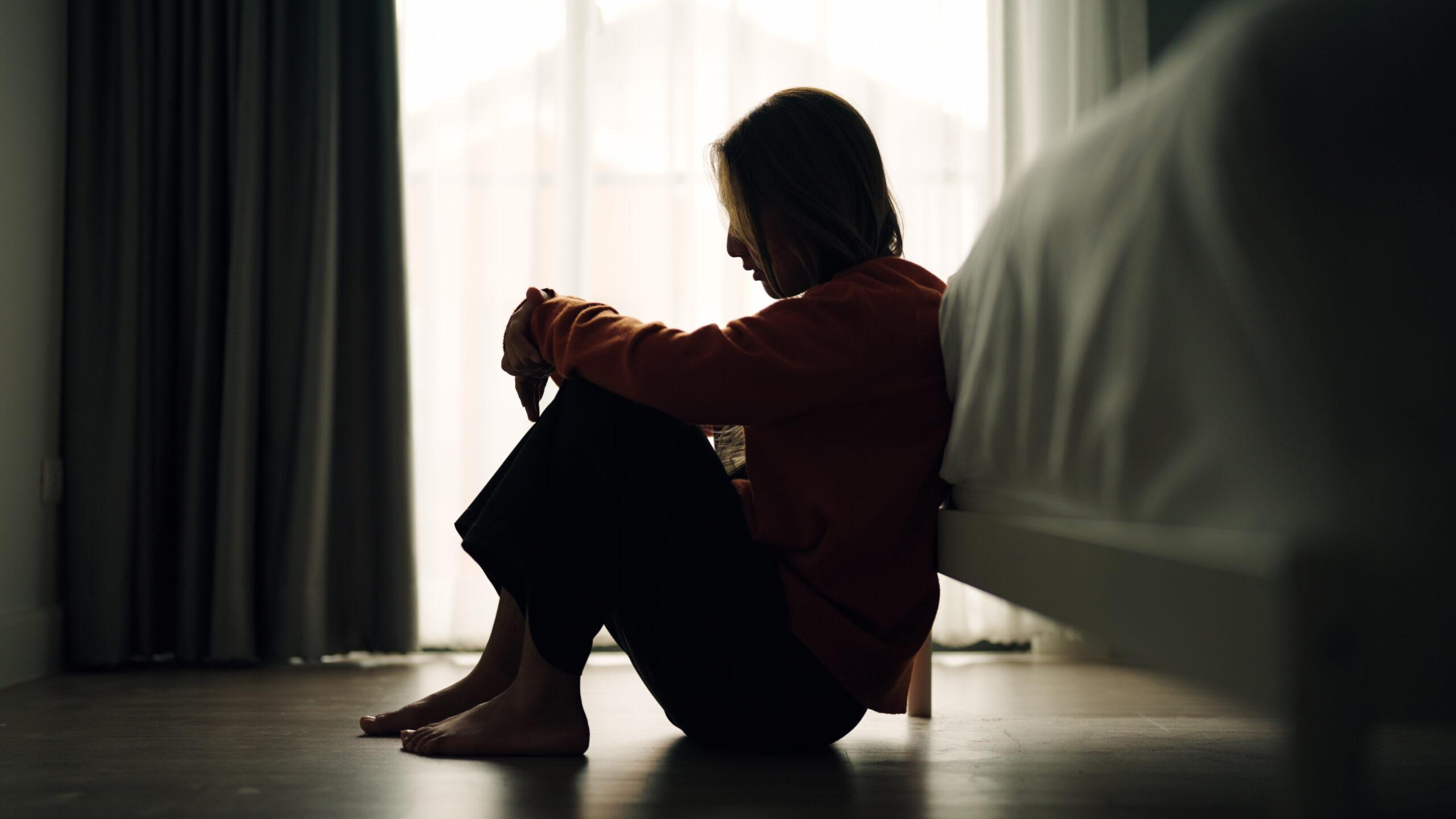
Plain English With Derek Thompson
‘The Anti-Social Century’: America’s Epidemic of Solitude—and How to Fix It
Hosts
About the episode
My new feature for The Atlantic magazine is called “The Anti-Social Century.” It’s a long article that revolves around a simple point: Americans are now spending more time alone than ever. This surging solitude is changing our personalities, our politics, our culture, and our relationships. On this episode, University of Chicago psychologist Nick Epley joins the show to talk about why aloneness matters. We talk about his research on relationships and solitude, on why we need people in our lives, and why sometimes we disregard or misunderstand that need, and why “social fitness” is so critical to a good life.
If you have questions, observations, or ideas for future episodes, email us at PlainEnglish@Spotify.com.
Summary
In the following excerpt, Derek and psychologist Nick Epley explore a puzzling question: Why do people keep to themselves so much when being social makes them happier?
Derek Thompson: So I reached out to you in the middle of my reporting, and when I called you, I was a bit stuck. What I had my hands on was a set of firm statistics about Americans spending less time socializing, more time alone, more time in their home. But someone could easily ask, and, in fact, my editors did ask: So what? Maybe Sartre was right; maybe hell really is other people. Maybe we’re better off denying ourselves social interaction. And I called you, and the first thing you said is that the question that I was asking touched on what you see as a fundamental paradox at the core of human life. What is that paradox?
Nick Epley: That paradox is really just a fundamental tension between the nature of who we are and the choices we often make in our daily lives. On the one hand, we are fundamentally social beings. It’s Aristotle who was right when he said that we are by nature social animals. We really need other people in order to get along well in life. He suggested that people who didn’t actually need other people were either beasts or gods. We’re not beasts or gods; we’re people, we’re normal people. The only way we get along well in life is through our connections with other people.
And psychologists haven’t so much been unlearning that perspective over the years, we’ve just been expanding it in so many ways. Aristotle was right in so many ways beyond the ways he actually knew. We’re fundamentally social. It affects our health. We’re happier when we’re connected positively to other people. It is, without question, I think, the biggest determinant of happiness, or at least one of the biggest determinants of our happiness. And so there’s that. We’re fundamentally social.
And yet, go outside and look around a little bit and watch what we actually do. I rode in on my train this morning from the far South Side of Chicago. I get on. This morning, I had some friends to talk to, which I do now, because I know this, and so I talk to people. So I have a carload of friends. But you look around, and what instead you see is a whole bunch of people totally choosing to keep to themselves. There are all these people around them who they could engage with, who they could talk to, and they’re choosing not to. So we are, on the one hand, fundamentally social, and yet, on the other, we so often choose to isolate ourselves. And that hits you like a bat to the face if you’re a psychologist. Why is it we do that? Why do we make those choices?
Thompson: How do we know you’re right? So those are two interesting and falsifiable claims: Humans are social, but Aristotle, great guy, didn’t have randomized controlled trials at his disposal. We can’t know for sure that his prose was defensible in the modern academic climate and also that people are denying themselves access to sociality that would make them happier. So how do we know this is true? What experiments have you done to establish the fact that people might have a happier experience of life if we urge them to be a little bit more social?
Epley: Well, let me tell you just the simple one that’s closest to the story that I just told you, some experiments that kind of started what was, for me, 15 years of research on this, which I’ve been doing for the last 15 years and continue to do now. We went to the trains that I ride on every morning. I had this observation about a decade and a half ago. I got on the train one morning. I just remember this. It was just a eureka moment for me. I get on the train, I’m writing the first book that I wrote, called Mindwise, and in that book, I’m writing about how fundamentally social we are, how we’ve got these brains that are uniquely equipped for connecting with the minds of others, how we’re made happier and healthier by connecting with others. And yet I looked around the train, and nobody’s talking to each other, including me. I wasn’t either.
So on that particular morning, I finally was attentive to this thing that was going on around me in a way I hadn’t been before. A woman comes down and sits next to me. She’s got this bright red hat, right out of old Hollywood or something, mid-50s African American woman, and I decide today I’m going to put myself on experiment. I’m going to try something different. I’m going to try to have a conversation with her, try to get to know her a little bit. And so I opened with a little joke, told her, “I love your hat. I got one just like it.” We both kind of chuckled at that. And what struck me was that it was almost as if she’d been struck by a lightning bolt. She just came to life. All of a sudden, when I reached up—she’d gotten on kind of dead-faced—I reach over, talk to her, she just brightens up.
And so that’s what kind of started me thinking about this, and so as many psychologists do, we study, sometimes, the things we observe in our lives. We test hypotheses that often start from observations in our life. They don’t have to be true, but they might be. So what we did, and this was Juliana Schroeder, a former PhD student of mine, we went down to the South Side of Chicago to the train line that I ride every single day. We didn’t go to the station that I ride from, which is in Flossmoor, Illinois, because that’s an above-ground station, and we started running these experiments in February, and it’s pretty freezing cold here in Chicago in February. You don’t want to freeze anybody to death.
So we went to Homewood, which is the little town north of us. They have an underground entryway, so we could be a little warmer recruiting people for our participants. And what we wanted to test was: What happens if we do what you just asked about? What happens if we just ask people on your commute to try talking to somebody versus whatever they normally do versus just keeping to themselves, enjoying their solitude? So those were three conditions we had in this experiment, and if people were interested, we then randomly assigned them to one of those three conditions. They only knew about the one. And that order, by the way, is important. You don’t want people in experiments choosing which condition to be in, because the people who would choose to talk are different from people who would choose not to talk.
So we randomly assigned them to those conditions. Those in the connection condition, we asked them to do something that’s seemingly radical on the train. We told them, “When somebody comes and sits down next to you this morning, try to get to know him or her a little bit, try to make a connection, have a conversation, OK?” In the control condition, we told them, “Do just whatever you normally do,” and mostly that’s not talk to the person who sits down next to you. In the third condition, we told them, “When you’re on the train today, just spend your time enjoying your solitude. Don’t talk to anybody around you. Just focus on your day ahead. Just keep to yourself, enjoy your solitude.”
We then handed them an envelope, which had a $5 Starbucks gift card in it, which is (a word to the wise) the most motivating incentive you can give to people on the planet. People will do anything for a morning coffee, including talk to strangers on the train. We gave them an envelope with a survey inside. That’s kind of an old-school way. We now do this on people’s cellphones. And the survey inside it asked them a few questions that they were supposed to fill out at the end of the train ride.
And it was a pretty long survey, but the first four questions were the ones that we focused on most; some of them, later questions, were personality items. But the first four ones were the ones we focused on the most. We asked them, “How happy are you after your commute today? How sad are you after your commute today? And how positive or pleasant or unpleasant is your commute compared to normal?” We averaged these together into a composite, and then we just looked to see who reports having a better commute.
And what we found was that those people who we had asked to try to have a conversation with somebody reported a more positive commute than those we asked to keep to themselves and more positive than the control condition as well. And so this raised the question, if actually connecting with somebody on that train in the morning does in fact lead to a more positive commute, why on earth do people almost never do it? Why do they almost never do it?
And to figure that out, we had to run another survey where we recruited people, and we asked them, instead of doing these things, we asked them to anticipate how they would feel if they had [done] each of these things. Our choices are guided not by our actual experiences; our choices are guided by how we think we’ll feel if we do something. And we did that, we asked people to imagine we’d put them in each of these experimental conditions: try talking to a stranger, keep to yourself, do whatever you normally do. And then they predicted how they would feel if they were in each of these conditions.
And people predicted actually the opposite of how the people who actually did this felt. They predicted that they would be happier if they kept to themselves than if they talked to a stranger. It’s not a surprise people are keeping to themselves on the train. That’s what they think will make them happy, and as far as we can tell, they’re just wrong about that.
Host: Derek Thompson
Guest: Nick Epley
Producer: Devon Baroldi
